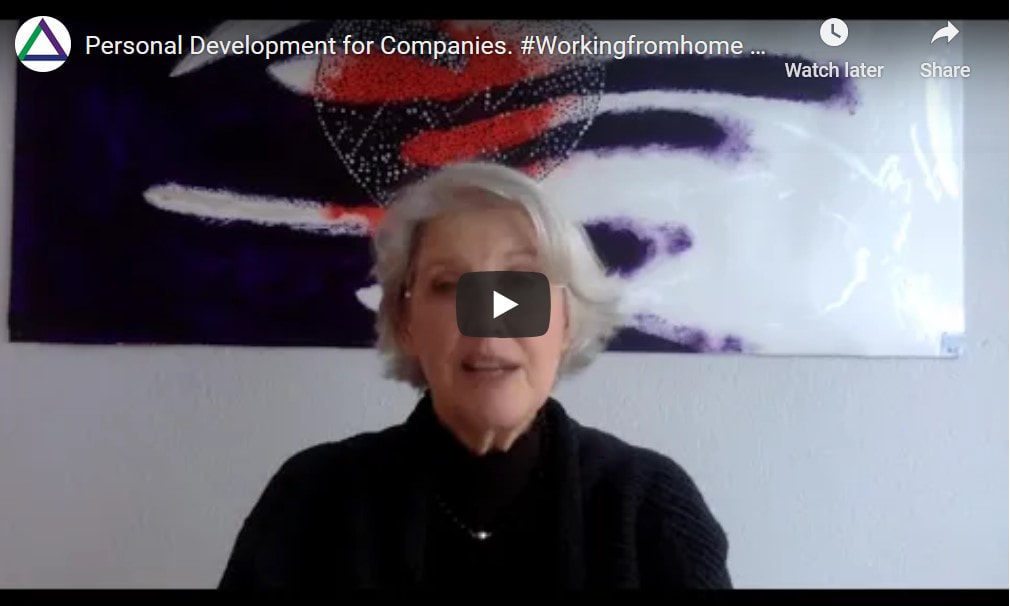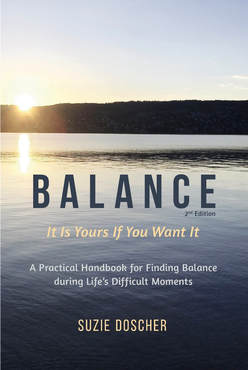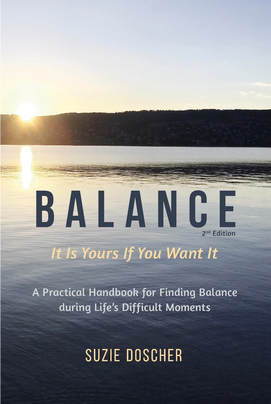|
That sounds a good thing but what is an everyday pleasure?
In this study the researchers investigated the relationship between simple pleasures and brain activity. Specifically drinking coffee, listening to music, and smelling perfume. Coffee and music for me - not so sure about the perfume though Participants could choose what they wanted according to their preferences - that’s important - it needs to be a personalised pleasure…of course. I’m with you on coffee and music also - but then again remember my article on the positive impacts of aroma exposure during sleep a few days ago? How did they measure this? Well, this is actually very innovative but we also need to be careful of marketing hype here as this was sponsored by MINDWATCH. They have developed algorithms over the years that can measure brain states based on skin conductance. That is your skin responds very quickly to your current state and this can me measured using a sensor. This is much less invasive than measuring brain wave activity. In this experiment they used skin conductance bands and a device to measure some brain activity also. And so what was the outcome? Participants conducted memory tests shortly after being exposed to these stimulants and their performance increase and this could be measured in the brain - an increase in beta band brain waves (associated with concentration and cognitive performance) - and skin conductance results. Music seems to be the most potent followed by coffee and then the perfume. Don’t we know this already? Actually yes. We know music can positively stimulate brain activity and is also considered a performance enhancing tool by World Athletics (and as such is not allowed directly before competition!). Similarly, there is a lot of research on coffee and its positive benefits. But participants in this could choose their preferred option. Also of interest is that there were three types of music to choose from and unsurprisingly the energetic was more effective than the relaxing one - but, and here is the surprise, they included an AI generated piece of music and this was the most effective! And what now? Well, this shows that those small pleasures can positively impact brain performance - this is why they are a small pleasure - a little bit of what you fancy does you good as they say - and this is not all in the mind. Your brain and cognitive performance will thank you. And what about all three simultaneously? That’s what I’m doing as I write this - feels good enough to me! by ANDY HAYMAKER Photo credit: Pexels Research: Hamid Fekri Azgomi, Luciano R. F. Branco, Md. Rafiul Amin, Saman Khazaei, Rose T. Faghih. Regulation of brain cognitive states through auditory, gustatory, and olfactory stimulation with wearable monitoring. Scientific Reports, 2023; 13 (1) Most of us will know that feeling - our attention can drop off during the day and our efficient mornings can then blend into less efficient afternoons. And Friday afternoon? Well, you can write that off!
This feeling, or assumption, is now backed up by some science, and pretty solid science at that in a novel piece of research. The research was conducted by a team around Drs. Taehyun Roh and Nishat Tasnim Hasan of the Texas A&M University. Much previous work has used self report studies or wearable technology for short periods of time - these can be invasive and in the case of self reporting very subjective. In this study the researchers tracked a large group of workers (789) at an energy company in Texas over two full years making this an impressive real world dataset. What they found is that computer use and output increased to Wednesday and then dropped off until Friday. What’s more, usage dropped off in the afternoon and also typos increased - a sign of fatigue and wavering attention. This was particularly bad on Friday afternoons - probably no surprise there - fatigue setting in not to mention the psychological impact of the looming weekend. The authors argue that this also supports shorter working weeks and other forms of work such as hybrid work or working from home as this can counter fatigue and increase productivity. After looking at the data it seem like it would make sense to just cancel Friday! Alas but then Thursday may become the new Friday. But seriously, evidence is strong for the effectiveness of the 4-day work week. One solid study published early in the year for Cambridge University showed increased wellbeing while preserving productivity. Sounds good to me! by ANDY HAYMAKER Photo credit: Pexels Reference: Taehyun Roh, Chukwuemeka Esomonu, Joseph Hendricks, Anisha Aggarwal, Nishat Tasnim Hasan, Mark Benden. Examining workweek variations in computer usage patterns: An application of ergonomic monitoring software. PLOS ONE, 2023; 18 (7): e0287976 DOI: 10.1371/journal.pone.0287976 More research showing that a little can do a lot In the quest for fitness and health there has been a focus on exercise as a key factor - we all know that. And recommendations are normally about increasing heart rates over long periods of time or possible also shorter more intensive sessions. These have also been shown to improve cognitive function - making your brain more effective.
However, the route to greater health may be easier - or more specifically of enhanced brain function. The effects of light activity in the focus on more intensive and extensive exercise has been largely underestimated - and is considered by some to be a key factor in public health. Our engagement in light activity has over the decades decreased significantly - see my previous article here. Become a free or paid subscriber. In this research just out Ryuta Kuwamizu and colleagues of the University of Tsukuba in Japan conducted a simple but effective experiment. In this participants did 10 mins of easy exercise - in this case light pedalling while seated. During this they measured pupil dilation because this is also related to brain function specifically executive function. Executive function refers to harder cognitive tasks such as decision making, short-term, memory, calculation, and analysis - basically what many consider the heavy lifting of the brain in our daily lives. Yes, and indeed just this short light exercise intervention increased delation of the pupil and this was directly related to improved executive functions which was determined though scanning the frontal part of the brain where our executive functions reside with a technique called near infrared spectroscopy. This therefore points to, as I have mentioned in other places, the significant benefits of short bouts of light exercise on improved brain function - something of particular interest to businesses no doubt. I have long since promoted the idea of regular short walking breaks - this shows again why. For a review of the benefits of walking see this article here). Not that it has to be at work - a walk or light exercise will improve your brain function - and that is good for all of us, all the time. by ANDY HAYMAKER Photo credit: Pexels Reference: Ryuta Kuwamizu, Yudai Yamazaki, Naoki Aoike, Taichi Hiraga, Toshiaki Hata, Michael A. Yassa, Hideaki Soya. Pupil dynamics during very light exercise predict benefits to prefrontal cognition NeuroImage, Volume 277, 2023. https://doi.org/10.1016/j.neuroimage.2023.120244 When a company focuses solely on reaching targets and continually pushes employees to reach these goals, the side effects often result in a high turnover and burnout rate.
Ironically, this can cause the company NOT to achieve its targets in the desired timeframe. Pushing too hard in one direction results in an inevitable push back from the opposite direction. This is a law of nature that applies to the business world as well. Stressed employees trying to reach sometimes unrealistic or unnecessary targets tend to operate at half of their capacity. They start to make mistakes and lose track of the details amid their overwhelming work schedules. They tend to suffer physically exhaustion as well. All of this hurts productivity, the very thing the company is trying to increase. How about going out for a sail, swim, drink, run, or meet friends, play with your children,
talk to your partner – without your head still being full of work-related information? It can be difficult to leave work related thoughts behind at the end of the day. Too many people arrive home and are not really present. Their body might have walked through the door but mentally they are miles away. This seems to be the reality in today's world. Remember: There is more to life than just work. You do need some kind of balance between down-time and work to be the most effective. Clarity will come easier if you give your brain a rest. It is amazing what thoughts, ideas, solutions and insights can come to you by creating some space for them. This is a common topic with my coaching clients. I might work with five different clients all on this particular topic, yet each one will find his or her own unique way to help themselves unwind and reenter their personal life. First of all, it helps to remember and accept as an important truth that your work is only part of your life. It is wonderful if you love what you do and have passion for your work, but do not forget that your personal life is at least as important as your work. The goal is not to neglect your work but also not neglect your family, friends, and self. Establish and maintain a routine of self-care – start by unwinding from work on your way home. Some examples that help my clients include: listening to music or an audiobook in the car or on the train, taking a walk and being more mindful while doing so, meeting a friend, or exercise. Start instilling this habit and you will experience life as more satisfying, rewarding, happy, and healthier in mind and body. A self-help book to further your personal development. BALANCE - A Practical Handbook for Life's Difficult Moments by Suzie DoscherAvailable in the Amazon Store of your country. In Paperback, on Kindle or as an Audiobook narrated by the author. (Audible or iTunes) One of the most powerful words in the English lexicon today is “trigger.” We are finally accepting that there is a spectrum of internal and external influences that can legitimately take us off course. We understand that a person, place, object, event, even a smell can trigger an emotional response so potent, we can be transported back to a trauma we’ve worked hard to forget, or come to terms with. These triggers can threaten our well-being and disrupt feelings around our core values. They can appear out of nowhere and make us feel powerless.
As an aspiring leader, a trigger can become your biggest obstacle. A strong, effective leader needs to be able to identify their emotional triggers, understand what can set them off, and steel themselves when these triggers threaten to topple everything they’ve worked for. Here are some strategies to help you identify and deal with those triggers so you can grow and develop into the leader you are meant to become. If you’re stuck tossing and turning once your head hits the pillow, these tips can help.
There are few things more frustrating than getting in bed after a long, tiring day only to realize your brain isn’t ready for sleep. You know those nights: Despite how exhausted you feel, your mind is off ruminating on tomorrow’s to-do list, your uncertainties about the pandemic, or whatever other worries are real for you in that moment. While you’re in the heat of tossing and turning, sleep can feel like a hopeless reality — but fortunately, that’s rarely the case. There are plenty of in-the-moment strategies that can help us kick our worries out the door so we can get the rest we need and deserve. We asked our Thrive community to share their go-to strategies that help them fall asleep when they’re stuck tossing and turning. Which of these tips will you turn to the next time you can’t sleep? Every summer, many people put aside their work, daily stresses and responsibilities and escape on a vacation, somewhere far away from reality. It may be a secluded retreat in the mountains, a camping trip with the kids, an arranged tour in another country, an Alaskan cruise, or days relaxing at an exotic beach or resort.
However, with the current pandemic including social distancing and travel restrictions, along with financial constraints for many, those plans may have to be temporarily shelved. But the desire to escape reality – for just a bit – is very much alive. So, with many people remaining in their homes, how can that off-work journey happen? We have some tips for making the best of the situation and creating cherished vacation memories without ever leaving home. It’s called a staycation. What’s a staycation? by Suzie Doscher, Executive Coach and Life Coach for Personal Development, Self-Help Author How can companies best support their employees during these difficult and challenging covid related times?. Working from home has added some extra issues to deal with. Individuals benefit from support dealing with:
(Coaching is not a substitute for counseling, psychotherapy, psychoanalysis, mental health care or substance abuse treatment) Get in touch - Let's talkLearning how to respond to a situation rather than just reacting to it brings huge rewards. Needless to say, it is one of those behaviour changes that is easier said than done. However it can be achieved.
Responding rather than reacting means you will have taken time to consider the situation and which response and consequent outcome best suits you. The difference between reacting and responding:
To react means you are not able to influence your emotions and you act emotionally rather than from a place of clarity. What you can gain by stopping knee-jerk reactions is a sense of strength, achievement, power to influence, calmness, plus an increase in your self-esteem. The rewards will be felt not only in your private life, but also at work. 'Balance - A Practical Handbook and Workbook for Life's Difficult Moments' by Suzie Doscher is about change and learning the necessary everyday skills required for life = life skills. The exercises help you improve the quality of your life, supports you in difficult moments and handle life’s challenging every-day situations better. It is a practical hands-on self coaching tool. Read or listen to it when you feel vulnerable, unsure of yourself, or ineffective in difficult and stressful moments. Learn how to handle your stress effectively with the help of the insights in the book. Bear in mind that there is no balance where there is stress – stress contradicts calmness and happiness. Choose which one you wish to have more of..it is up to you. The goal of this book is to help you create new opportunities, learn new behaviors, and become the best version of yourself. It is all about practical action oriented insights, steps and behavior change. Order Your Book Now
|
'Control Freaks - Also Knowns as Micro-Managers' is an |
BALANCE |
The BALANCE Handbook helps you with difficult moments
This book is about change and finding balance in life.
Read it when you feel vulnerable and unsure of yourself.
This book will help you find new opportunities, learn new behaviors and life skills to become the best version of yourself.
Handle everyday problems more effectively and improve the quality of your life and the life of those around you.
Take the time to invest in yourself before you find yourself off balance. Strengthen your weaknesses before they rule your life.
This 2nd Edition Handbook now includes the Interactive Workbook for Self-Coaching. With the journaling in the Workbook you explore your goals, where you stand now and the issues from the past holding you back.
Order your book today and start bringing more balance into your life.
This book is about change and finding balance in life.
Read it when you feel vulnerable and unsure of yourself.
This book will help you find new opportunities, learn new behaviors and life skills to become the best version of yourself.
Handle everyday problems more effectively and improve the quality of your life and the life of those around you.
Take the time to invest in yourself before you find yourself off balance. Strengthen your weaknesses before they rule your life.
This 2nd Edition Handbook now includes the Interactive Workbook for Self-Coaching. With the journaling in the Workbook you explore your goals, where you stand now and the issues from the past holding you back.
Order your book today and start bringing more balance into your life.
Contact Suzie Doscher
to book a coaching session with her
by Maura Thomas
Around 11 p.m. one night, you realize there’s a key step your team needs to take on a current project. So, you dash off an email to the team members while you’re thinking about it.
No time like the present, right?
Wrong. As a productivity trainer specializing in attention management, I’ve seen over the past decade how after-hours emails speed up corporate cultures — and that, in turn, chips away at creativity, innovation, and true productivity.
If this is a common behavior for you, you’re missing the opportunity to get some distance from work — distance that’s critical to the fresh perspective you need as the leader. And, when the boss is working, the team feels like they should be working.
Think about the message you’d like to send. Do you intend for your staff to reply to you immediately?
Around 11 p.m. one night, you realize there’s a key step your team needs to take on a current project. So, you dash off an email to the team members while you’re thinking about it.
No time like the present, right?
Wrong. As a productivity trainer specializing in attention management, I’ve seen over the past decade how after-hours emails speed up corporate cultures — and that, in turn, chips away at creativity, innovation, and true productivity.
If this is a common behavior for you, you’re missing the opportunity to get some distance from work — distance that’s critical to the fresh perspective you need as the leader. And, when the boss is working, the team feels like they should be working.
Think about the message you’d like to send. Do you intend for your staff to reply to you immediately?
By Nicolas Cole
Being productive is all about preparation. If you know what you need to do ahead of time, you will know exactly where to dive in as soon as you get started. On the flip-side, if you do not take the time to prepare, you will find yourself flustered and uncertain because you now have to think through whatever it is you need to do.
Having a great week does not start on Monday. It starts Sunday night. It begins with what you set in your mind you are going to do, before you actually set out to do it.
Here are a few ways to "get your mind right" for the week ahead:
1. Reflect on what you've already finished.
Your to-do list is, and will always be, fluid. It moves as you move, and it stays put as you stay put. If you don't get things done, they remain on the list. And if you are always getting things done, then your list will be a growing and expanding reflection of that process (which is the goal).
However, in order to know what is "next," you need to take a moment to reflect on the status of where things currently are. Look through your to-do list from the week prior and see what you got done or didn't get done--and then ask yourself why certain things got accomplished and others didn't.
If something remains on your to-do list for weeks on end, you need to make a decision: Either remove it entirely (clearly it's not getting done) or push it all the way to the top and make it a priority to do that item before anything else.
Take the time to reflect, though. It is immensely valuable over the long term....read more..
by Suzie Doscher
There are wonderful books, classes, films, talks, workshops, DVDs, magazine articles, conversations, coaches, and therapists teaching the importance of being in the moment, staying in the now and going with the flow. But how do you really do this?
It seems odd that we do not just naturally live in the now. After all, almost everyone would agree that the present moment, the now, is all we have. The fact remains that most people do not live in the present moment and have to learn how to do so.
Reasons to master living in the moment:
Steps to practice being in the moment:
There are wonderful books, classes, films, talks, workshops, DVDs, magazine articles, conversations, coaches, and therapists teaching the importance of being in the moment, staying in the now and going with the flow. But how do you really do this?
It seems odd that we do not just naturally live in the now. After all, almost everyone would agree that the present moment, the now, is all we have. The fact remains that most people do not live in the present moment and have to learn how to do so.
Reasons to master living in the moment:
- You receive instant relief from stress
- You are able to manage fears better
- You become calmer. A sense of calmness enters if you stop to take a few breaths. Focusing on your breathing returns your mind to the present moment, away from your thoughts.
- You feel stronger and some of your personal power returns. You feel stronger because you took charge of the moment. This offers the feeling of having influence and consequently strength.
Steps to practice being in the moment:
By Monica Torres
No good employer is going to outright say that they kill you, but new research finds that too many modern workplaces are grim reapers inflicting a fatal amount of stress on our bodies and minds.
Jeffrey Pfeffer, a professor of organizational behavior at Stanford, is ringing the alarm that job stress and poor management is killing us — accounting for up to 8% of annual health costs and leading to 120,000 excess deaths every year in the United States.
In his new book, “Dying for a Paycheck: How Modern Management Harms Employee Health and Company Performance — and What We Can Do About It,” he explains how long hours, a lack of job autonomy through micromanagement, and unstable health insurance are making us sick to death.
He talked with Ladders about his research and what leads otherwise reasonable people to stay in toxic jobs:
No good employer is going to outright say that they kill you, but new research finds that too many modern workplaces are grim reapers inflicting a fatal amount of stress on our bodies and minds.
Jeffrey Pfeffer, a professor of organizational behavior at Stanford, is ringing the alarm that job stress and poor management is killing us — accounting for up to 8% of annual health costs and leading to 120,000 excess deaths every year in the United States.
In his new book, “Dying for a Paycheck: How Modern Management Harms Employee Health and Company Performance — and What We Can Do About It,” he explains how long hours, a lack of job autonomy through micromanagement, and unstable health insurance are making us sick to death.
He talked with Ladders about his research and what leads otherwise reasonable people to stay in toxic jobs:
Suzie Doscher is a Professional Executive Coach focusing on Personal Development. Located in Zurich, Switzerland. Her approach to personal development is practical and successful.
Suzie is happiest when helping people.
Her vision is everyone should have access to techniques for personal growth and development. This was the motivation behind her book.
Suzie is happiest when helping people.
Her vision is everyone should have access to techniques for personal growth and development. This was the motivation behind her book.


















 RSS Feed
RSS Feed

